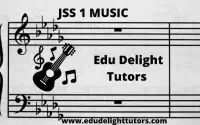Mid Term Assessment and Break Islamic Religious Studies JSS 1 First Term Lesson Notes Week 7
Islamic Religious Studies JSS 1 First Term Lesson Notes Week 7
Subject: Islamic Religious Studies
Class: JSS 1
Term: First Term
Week: 7
Age: 11 – 12 years
Topic: Mid Term Assessment and Break
Mid Term Assessment Overview
This assessment is designed to evaluate students on the topics covered during the first half of the term. It consists of four parts:
- Part A: Objective Questions
- Part B: Theory Questions
- Part C: True or False Questions
- Part D: Fill in the Gaps Questions
Part A: Objective Questions (20 Fill-in-the-Blank Questions)
- The first pillar of Islam is __________.
a) Zakat
b) Salah
c) Iman
d) Hajj - At-Tahārah means __________.
a) Prayer
b) Purification
c) Charity
d) Fasting - The word ‘Wudu’ refers to __________.
a) Water
b) Prayer
c) Ablution
d) Fasting - The six articles of Iman include belief in __________.
a) The prophets
b) The angels
c) The Day of Judgment
d) All of the above - Sūratun-Nās is the __________ chapter of the Qur’an.
a) 112
b) 113
c) 114
d) 115 - Iman is __________ in relation to other pillars of Islam.
a) Secondary
b) The foundation
c) Unimportant
d) Optional - Najasah refers to __________.
a) Cleanliness
b) Impurity
c) Prayer
d) Worship - The main focus of Sūratul-Falaq is seeking protection from __________.
a) Good
b) Evil
c) Wealth
d) Ignorance - The Arabic term for faith is __________.
a) Iman
b) Salah
c) Zakat
d) Hajj - The last prophet in Islam is __________.
a) Moses
b) Jesus
c) Muhammad
d) Ibrahim - The term ‘Kalimatush-Shahādah’ means __________.
a) Declaration of Faith
b) Prayer
c) Charity
d) Fasting - At-Tahārah is important for __________.
a) Prayer
b) Charity
c) Fasting
d) None of the above - __________ is required to perform Salah.
a) Wudu
b) Zakat
c) Fasting
d) Hajj - The practice of Zakat is to give __________.
a) Time
b) Money
c) Food
d) Prayers - Fasting during Ramadan is observed in the __________ month of the Islamic calendar.
a) 9th
b) 8th
c) 7th
d) 10th - The Arabic word for prayer is __________.
a) Zakat
b) Salah
c) Wudu
d) Iman - The act of charity in Islam is known as __________.
a) Zakat
b) Hajj
c) Fasting
d) Salah - __________ is recited for seeking protection from evil.
a) Sūratun-Nās
b) Sūratul-Falaq
c) Al-Fatiha
d) Al-Ikhlas - The condition for Kalimatush-Shahādah includes __________.
a) Belief in one God
b) Belief in angels
c) Belief in prophets
d) None of the above - The Qur’an was revealed to the Prophet __________.
a) Musa
b) Isa
c) Muhammad
d) Ibrahim
Part B: Theory Questions (20 Short Answer Questions)
- Define At-Tahārah and its significance in Islam.
- What are the two main types of Najasah?
- Explain the process of performing Wudu.
- List and explain the six articles of Iman.
- Describe the meaning of Kalimatush-Shahādah.
- How does Sūratun-Nās help Muslims?
- Discuss the importance of Sūratul-Falaq.
- What is the relationship between Iman and the pillars of Islam?
- Explain why purification is essential before prayer.
- What is the role of charity (Zakat) in Islam?
- How does fasting during Ramadan benefit Muslims spiritually?
- Discuss the significance of the Prophet Muhammad in Islam.
- Describe how to overcome Najasah.
- Why is the belief in angels considered an article of faith?
- What lessons can be learned from Sūratul-Falaq?
- Explain how Muslims seek Allah’s protection.
- What are the benefits of performing Wudu regularly?
- Why should Muslims memorize certain Surahs?
- Discuss the meaning of the phrase “In the name of Allah, the Most Gracious, the Most Merciful.”
- How does understanding the Qur’an enhance a Muslim’s faith?
Part C: True or False Questions (20 True or False Questions)
- Iman is the second pillar of Islam.
- Wudu is not necessary for prayer.
- At-Tahārah refers to cleanliness and purity.
- Sūratul-Falaq consists of three verses.
- Zakat is a form of charity in Islam.
- The Qur’an was revealed to the Prophet Isa.
- There are five articles of Iman.
- Sūratun-Nās is recited for protection against evil.
- Fasting is observed during the month of Muharram.
- The last prophet is known as Muhammad.
- Najasah means purity in Arabic.
- Kalimatush-Shahādah is a declaration of faith.
- Sūratul-Falaq is the last chapter of the Qur’an.
- The act of prayer is known as Salah.
- Charity is optional in Islam.
- Muslims must perform Wudu before Salah.
- Iman has no relation to other pillars of Islam.
- The Prophet Muhammad is considered the seal of the prophets.
- Envy is one of the dangers mentioned in Sūratul-Falaq.
- Purification is not important for a believer.
Part D: Fill in the Gaps Questions (20 Fill-in-the-Blank Questions without Options)
- The first pillar of Islam is __________.
- Wudu is performed with __________.
- The Arabic term for faith is __________.
- Najasah refers to __________.
- Sūratul-Falaq is used for seeking __________.
- Zakat is a form of __________.
- At-Tahārah is essential for __________.
- The last prophet is __________.
- The six articles of Iman include belief in __________.
- Fasting during Ramadan teaches __________.
- Iman is the foundation of __________.
- The act of prayer is referred to as __________.
- Muslims seek protection by reciting __________.
- __________ is a declaration of faith in Islam.
- The Qur’an was revealed to __________.
- Purity is necessary for performing __________.
- Charity in Islam is known as __________.
- Sūratun-Nās is the __________ chapter of the Qur’an.
- The phrase “In the name of Allah” is called __________.
- Muslims must believe in the __________ of angels.
Conclusion:
This assessment will help gauge students’ understanding of key concepts in Islamic Religious Studies covered during the first term. Students are encouraged to review their notes and prepare adequately for the assessment.


